Iftekhar

Subscribe to read full article
This section is for paid subscribers only. Our subscription is only $37/- for one full year.
You get unlimited access to all paid section and features on the website with this subscription.
Not ready for a full subscription?
You can access this article for $2 , and have it saved to your account for one year.
- Real Name: Sayyadana Iftekhar Ahmed Shareef
- Born: 22 February, 1922 (Jalandhar)
- Died: 4 March, 1995 (Bombay)
- Primary Cinema: Hindi
- Spouse: Hannah Joseph alias Rehana Ahmed
- Children: Salma, Saida
Best embodied in the persona of the upright police officer character he played multiple times on screen, Iftekhar acted in more than 300 films in various roles in the course of a long and successful career spanning approximately five decades, from 1938 to 1992. Playing a loyal and dutiful officer was his forte, enhanced by his handsome face, upright mien, and innate dignity. Some of his most memorable roles feature in Ittefaq (1969), Khamoshi (1970), Safar (1970), Mehboob Ki Mehndi (1971), Joroo Ka Ghulam (1972), Zanjeer (1973), Raja Rani (1973), Deewar (1975), Don (1978), Rajput (1982) and Awam (1987). While he started off playing the leading role in films, he found success in a range of character roles playing a relative, courtroom judge and doctor. While he did essay a police officer or police commissioner in most of his films, he also played negative roles in Bandini (1963), Sawan Bhadon (1970), and Khel Khel Mein (1975). His talents also included singing and painting. In fact, his striking artwork even featured in the Kishore Kumar film Door Gagan Ki Chhaon Mein (1964), in the title credits.
Born Sayyadana Iftekhar Ahmed Shareef on 22 February, 1922 in Jalandhar, he was the eldest of four brothers and a sister. His childhood was spent in Kanpur, where his father held a top position in a company. After completing his Matriculation, he completed a diploma course in painting from the Lucknow College of Arts. His passion was singing; he dreamt, in fact, of becoming a singer of the stature of K L Saigal. When he was 20, he moved to Calcutta, where the big music companies of the day were based. There, he managed to clear the audition conducted by renowned music composer, Kamal Dasgupta for HMV Calcutta. HMV released a private album containing two songs rendered by Iftekhar. On returning to Kanpur, he received a telegram from Kamal Dasgupta asking him to return to Calcutta. Dasgupta, who had composed music for M P Productions’ films, had been so impressed by Iftekhar’s cultured personality and presence that he had recommended him to M P Productions for acting roles.
Iftekhar’s debut came with the Art Films-Calcutta production, Taqraar (1944). It starred Jamuna as the female lead. The following year, he had two releases—Ghar (1945) and Rajlaxmi (1945), co-starring Jamuna and Kanan Devi in the main lead respectively. Rajlaxmi, which was made under the banner of M P Productions, also marked the debut of Talat Mehmood as singer as well as actor. Iftekhar was then seen in the films Aisa Kyon (1947) and Tum Aur Mai (1947).
During the time of India’s Independence, many of Iftekhar’s close relatives including his parents and siblings migrated to Pakistan during Partition. While Iftekhar preferred to stay on in India, due to riots he was forced to leave Calcutta. He, along with his wife and daughters, came down to Bombay in the year 1948 and stayed at Hotel Evergreen at Khar. Once again, it was a time of struggle to make ends meet. Things changed after a meeting with Ashok Kumar at Bombay Talkies, who Iftekhar had been introduced to by Kanan Devi in Calcutta. Ashok Kumar not only recognized Iftekhar but also gave him an important role in Bombay Talkie’s Muqaddar (1950). Later, Ashok Kumar also learnt painting from Iftekhar, whom he considered his guru in painting, even though Iftekhar was far junior in years.
During the 1950s and 60s, Iftekhar played various roles of varying lengths in approximately 70 films. These included Sagai (1951), Saqi (1952), Aabshaar (1953), Biraj Bahu (1954), Mirza Ghalib (1954), Devdas (1955), Shree 420 (1955), Samandari Daku (1956), Ab Dilli Door Nahin (1957), Dilli Ka Thug (1958), Ragini (1958), Bedard Zamana Kya Jaane (1959), Kangan (1959), Naach Ghar (1959), Chhabili (1960), Kalpana (1960), Professor (1962), Rangoli (1962), Bandini (1963), Meri Soorat Teri Ankhein (1963), Door Gagan Ki Chhaon Me (1964), Sangam (1964), Shaheed (1965), Phool Aur Patthar (1966), Teesri Kasam (1966), Teesri Manzil (1966), Hamraz (1967), Sangharsh (1968), Aadmi Aur Insaan (1969) and Inteqaam (1969) but he failed to get much recognition. The struggle continued… till Ittefaq (1969) released.
Iftekhar played a cop in Ittefaq, which was made under the banner of B R Films. It was a film that changed his life. The police inspector’s uniform suited him so perfectly, that it brought him success, fame, and abundant work, ensuring he was constantly busy. He soon bought his own house in Khar. Again, it was Ashok Kumar who had lent a helping hand, recommending Iftekhar to B R Films.
For Iftekhar, the 70s and 80s were the busiest decades of his career. During this period of success, he acted in scores of films including Johny Mera Naam (1970), Mehboob Ki Mehndi (1971), Gambler (1971), Daag (1973), Zanjeer (1973), Anamika (1973), Deewaar (1975), Kabhie Kabhie (1976), Gumrah (1976), Dulhan Wahi Jo Piya Man Bhaye (1977), Agent Vinod (1977), Trishul (1978), Don (1978), Khatta Meetha (1978), Noorie (1979), Mr Natwarlal (1979), Karz (1980), Dostana (1980), Rocky (1981), Nikaah (1982), Dard Ka Rishta (1982), Sadma (1983), Mashaal (1984), Meri Jung (1985), and Awara Baap (1985). Bekhudi (1992) and Kaala Coat (1993) were among the last films he acted in. He also acted in two episodes of the American TV series Maya in 1967, as well as the English language films Bombay Talkie (1970) and City of Joy (1992).
On the personal front, Iftekhar was married to Hannah Joseph, a Jewish lady from Calcutta, who took on the name Rehana Ahmed. The couple had two daughters, Salma and Saida.
Iftekhar passed away on 4 March, 1995.
References
Information courtesy: Beete Hue Din
-
Filmography (268)
SortRole
-
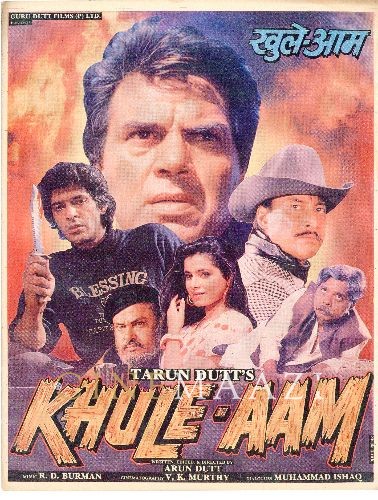
Khule-Aam 1992
-

Iraada 1991
-
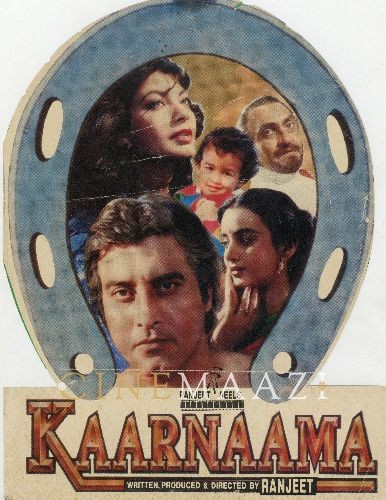
Kaarnaama 1990
-
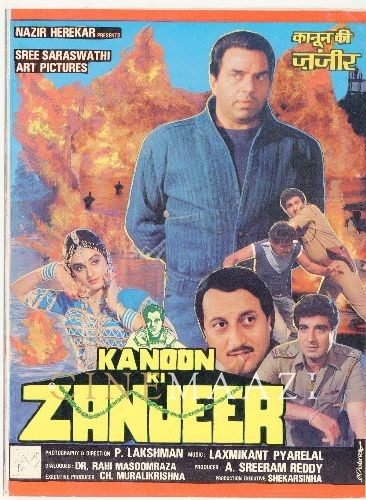
Kanoon Ki Zanjeer 1990
-
Karnama 1990
-

Maha Sangram 1990
-
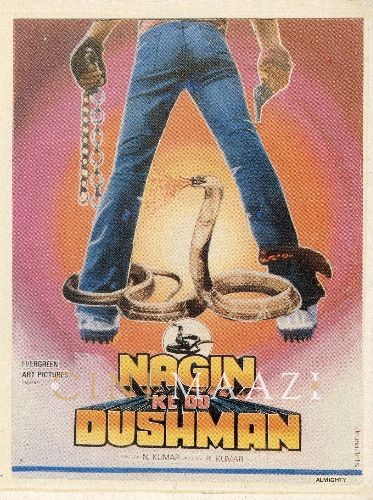
Nagin Ke Do Dushman 1989
-

Peechha Karro 1988
-

Sherni 1988
-

Woh Phir Aayegi 1988
-
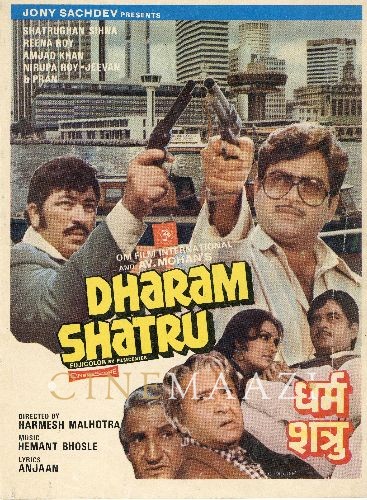
Dharam Shatru 1988
-









.jpg)



